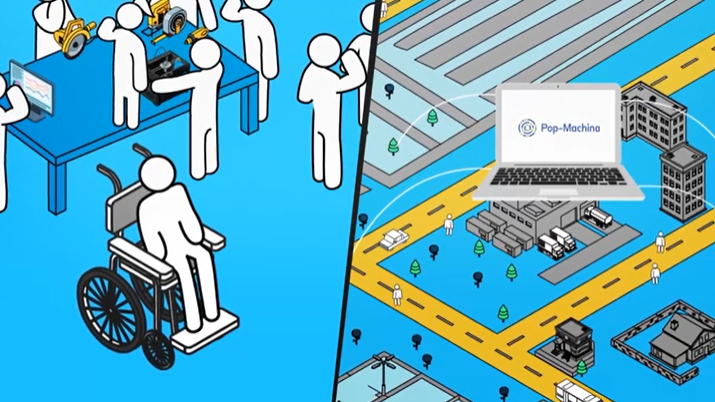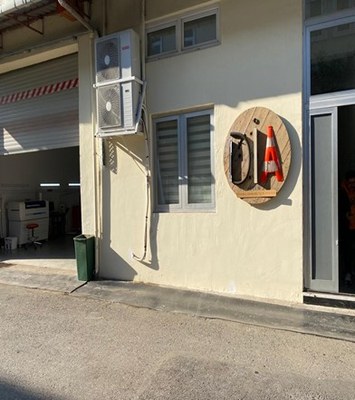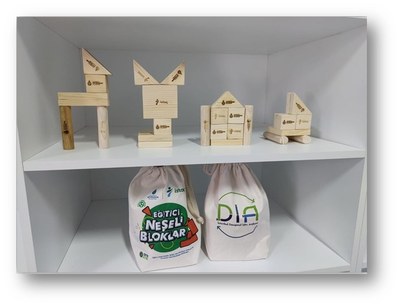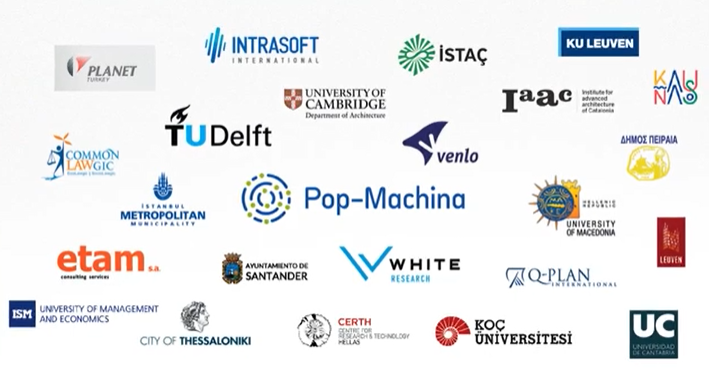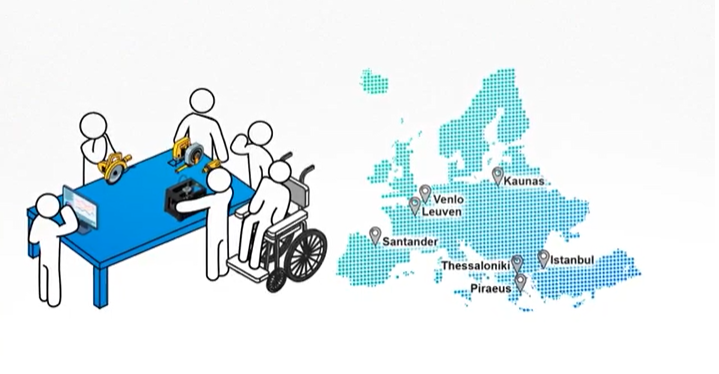Pop-Machina is a Horizon 2020 project that seeks to highlight and reinforce the links between the maker movement and circular economy in order to promote environmental sustainability and generate socio-economic benefits in European cities.
Circular economy is a promising alternative to existing linear production and consumption patterns that generate enormous waste and have a huge negative impact on the environment overall. Circular use of material, through for example recycling and reusing, can reduce the generation of waste as well as our dependence on extraction or import of raw materials. As such, it has the potential to bring about significant environmental and economic benefits.
Maker movement brings together individuals engaged in do-it-yourself (DIY) activities, sparking communities all over the world. These communities typically create products from waste materials or re-assembly products that are discarded, broken or unused. The movement has grown rapidly in the recent decades, benefitting from the expansion of open workshops (makerspaces), the increase of availability and affordability of digital fabrication tools such as 3D printers and laser cutters, and the prosumer trend in general.
Maker movement is one of the most promising agents for driving the transition of cities to a more circular economy model and so holds great potential for urban regeneration, improved sustainability, social welfare and cohesion.
POP-MACHINA aims to
- Demonstrate the power and potential of the maker movement and collaborative production for the EU circular economy
- Support the implementation of the EU Circular Economy Action Plan
- Contribute to the growth of maker ecosystems and the production of circular innovations in European cities
- Mobilise citizens under the banner of circular economy and collaborative production
- Empower communities to innovate and make their cities more resilient and adaptive to socio-economic and environmental challenges
Seven European cities with diverse characteristics have been selected to pilot test the approach: Santander (ES), Istanbul (TR), Venlo (NL), Thessaloniki (GR); Leuven (BE) Kaunas (LT and Piraeus (GR)
ISTANBUL CASE
One of the main challenges faced by the city of Istanbul is the growing population and immigration that result to social integration challenges. Besides that, this demographical trend results to increased traffic density and congestion, and need for new integrated public services and more housing and commercial areas. More importantly, this growing population has increased demands for food and drinking water, whereas leads to increased consumption and consequently greater waste generation. Thus, there is an urgent need for urban regeneration and sustainable development, which will take under control the green and open spaces, their air and environmental quality, as well as a sufficient waste management and waste water treatment.
Parallel to Istanbul’s population increase, waste generation also increases drastically. According to the city’s records of 2017, Istanbul generated 18.500 tons per day municipal wastes. At the moment, only 6% of this waste can be recovered or recycle, and this can potentially be an enormous economic gain, and at the same time can create hundreds of new jobs. In order to turn this potential into added value, new projects have to be initiated so that we can reach the 2023 National Recycling Targets. Thus, in Istanbul, Pop-Machina aims to use a neighbourhood-based approach in order to promote an urban circular production ecosystem leveraging organic materials, by nudging and providing support to local citizens and SME owners in becoming circular innovators themselves.
